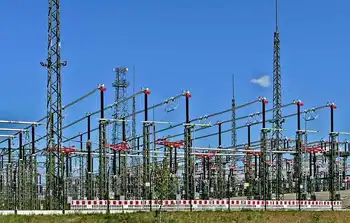CEA urges Canada to fight copper theft
OTTAWA, Ontario - - Recently, the Canadian Electricity Association CEA released a policy paper that draws attention to the impacts of copper theft from electricity infrastructure and outlines four key recommendations to deter copper theft in Canada.
“Given the high price of copper, copper thefts across the country are on the rise,” said CEA President and CEO Jim Burpee. “These thefts pose a real and significant threat to the safety of Canadians and the reliability of our system. More needs to be done to deter copper theft in Canada.”
Since 2010, media reports show that many people have suffered serious injuries from copper theft and tragically eight people have lost their lives. While costly to the electricity sector, approximately $40 million each and every year, copper theft is also costly to other sectors and businesses across the country.
“In my line of work I have seen first-hand the tragic and damaging impacts of copper theft in Ontario and across the country,” explained Scott Tod, Deputy Commissioner, Investigations and Organized Crime, Ontario Provincial Police. “Lives of innocent Canadians are put in danger by copper theft. It is time to take action to crack down on copper theft in Canada.”
The Canadian Electricity Association recently released a policy paper identifying four detailed recommendations to combat copper theft across the country:
1. Action by All - The development of a National Action Plan on copper theft by federal, provincial and territorial governments will ensure that copper theft isnÂ’t simply pushed from one jurisdiction to another. It will also provide a forum that enables governments to share best practices and actions in an effort to reverse current trends.
2. Coalitions to Combat Copper Theft - Some utility companies have formed working groups, coalitions of sorts, bringing together law enforcement, the legal community, security personnel and others who are interested in deterring the theft of copper. These on-the-ground local approaches serve as models that should be implemented across the country. There is no greater force than individuals who are directly involved on the ground in impacted communities.
3. Provincial Regulation of Scrap Metal Dealers - British Columbia, Alberta, and Nova Scotia have passed legislation to crack down on metal theft in their jurisdictions. All provinces should take action to pass legislation to regulate the sale of copper. Currently, the lack of regulation in other provinces allows copper thieves to steal copper in one jurisdiction and sell it in another.
4. Amendments to the Canadian Criminal Code - At present, the Criminal Code penalties do not accurately reflect the severity of copper theft. An individual apprehended for stealing copper is currently charged with “theft under $5000”, the same as stealing a bicycle. The Criminal Code should be updated to reflect the dangers copper theft poses to emergency first responders and local residents. It should also reflect the impact to the reliability of Canada’s grid.
Related News

France’s first offshore wind turbine produces electricity
PARIS - Floating offshore wind turbine Floatgen, the first offshore wind turbine installed off the French coast, exported its first KWh to the electricity grid.
The connection of the electricity export cable and a final series of tests carried out in recent days enabled the Floatgen wind turbine, which is installed 22 km off Le Croisic (Loire-Atlantique), to become fully operational on Tuesday 18 September.
This announcement is a highly symbolic step for the partners involved in this project. This wind turbine is the first operational unit of the floating foundation concept patented by Ideol and built in concrete by Bouygues Travaux…




